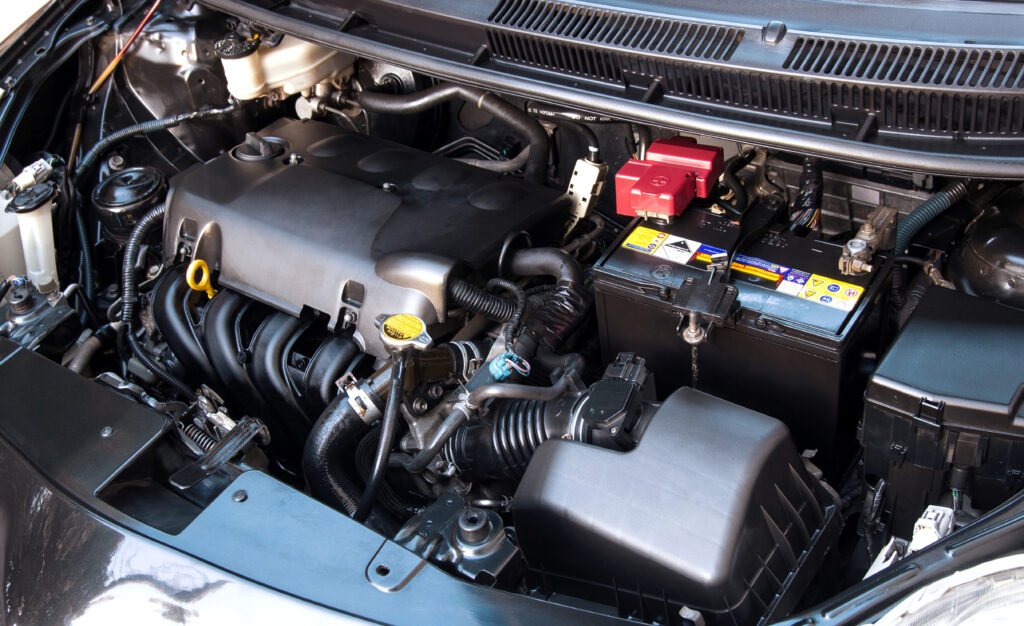Introduction
Picture this: You’re rushing to an important appointment, you hop into your car, turn the key, and instead of the familiar engine roar, you hear a faint clicking sound—or worse, nothing at all. Your car battery might be the culprit. A failing battery can leave you stranded at the worst possible moment, but the good news is that it often gives warning signs before it dies completely. In this article, we’ll dive into the top 10 signs of a bad car battery, helping you recognize when it’s time for a replacement. By staying proactive, you can avoid the frustration of a dead battery and keep your vehicle reliable.
Signs Your Car Battery Needs Replacement
- Slow Engine Crank
When you turn the key, the engine struggles to start, cranking slower than usual. This happens because the battery lacks the power to spin the starter motor efficiently. Over time, a battery’s capacity diminishes, especially in cold weather. Test the voltage with a multimeter—if it’s below 12.4 volts when the car is off, replacement might be imminent. - Dimming Headlights
If your headlights seem dimmer, particularly when idling, your battery may not be supplying enough power. Headlights rely on the battery when the alternator isn’t running at full capacity. Check for loose connections or corrosion, but persistent dimming often signals a failing battery. - Electrical Issues
Are your power windows sluggish? Is the radio cutting out? These electrical glitches occur when the battery can’t deliver consistent voltage. While the alternator might also be at fault, a weak battery is a common cause. A professional test can determine whether it’s time for a new one. - Battery Warning Light
A glowing battery or check engine light on your dashboard is a clear red flag. Modern vehicles use sensors to monitor the charging system, and this light often means the battery isn’t holding a charge. Use an OBD-II scanner to check for specific error codes and confirm the issue. - Swollen Battery Case
A bloated or deformed battery case is a physical sign of trouble. Excessive heat or overcharging can cause the battery to expand, potentially leaking dangerous chemicals. If you spot this, replace the battery immediately—it’s a safety hazard. - Corrosion on Terminals
White, powdery buildup on the battery terminals indicates corrosion, often from leaking electrolyte. This can disrupt the connection between the battery and the car’s electrical system. Clean it with baking soda and water, but if it keeps returning, the battery may be nearing its end. - Frequent Jump-Starts
Needing to jump-start your car repeatedly is a strong hint that the battery can’t hold a charge. While a single jump might revive it temporarily, consistent failure suggests it’s time to invest in a replacement rather than relying on quick fixes. - Old Age
Most car batteries last 3-5 years, depending on usage and climate. As they age, their ability to recharge weakens. If your battery is over three years old and showing other symptoms, it’s wise to test it annually—or replace it preemptively. - Unpleasant Odor
A rotten egg smell near the battery signals a leak or overheating, both of which are dangerous. This sulfuric odor means the battery is failing internally. Avoid sparks or flames, and swap it out as soon as possible. - Clicking Sound When Starting
A rapid clicking noise when you turn the key indicates the battery lacks the juice to engage the starter motor. You might get a temporary start with a jump, but this symptom often means the battery is too weak to function reliably.
How to Test Your Battery
Not sure if these signs mean replacement time? A simple test can clarify. Use a multimeter to check the voltage—12.6 volts is ideal when fully charged. If it’s lower, charge it and test again. If it still won’t hold a charge, or if you notice multiple signs from this list, it’s time for a new battery. Auto parts stores often offer free testing if you don’t have the tools.
Conclusion
Your car battery powers everything from the ignition to the headlights, making it a vital component of your vehicle. Recognizing the signs of a bad car battery—like slow cranking, dim headlights, or a dashboard warning light—lets you act before you’re stuck on the side of the road. Regular checks and timely replacement can save you time, money, and stress. Don’t wait for a complete failure—address these symptoms early to keep your car running smoothly.
Call-to-Action:
Have you noticed any of these signs in your car? Share your experience in the comments below, and check out our step-by-step battery replacement guide for help with the next steps!

